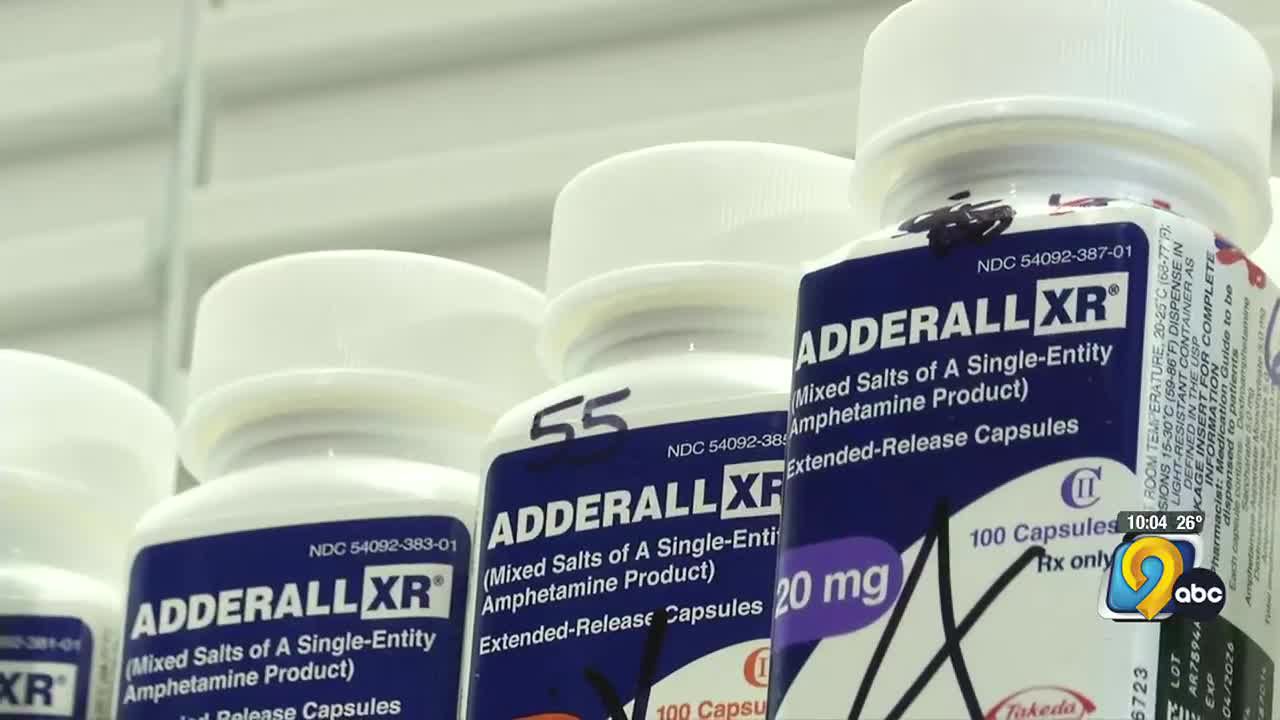LISTEN TO THIS ARTICLE:
This fall the Food and Drug Administration (FDA) announced a shortage of the immediate release form of Adderall in the United States. While people don’t usually think of stimulants as life-saving drugs, the Adderall shortage does pose dangers to many people. Adderall is a medication used to treat Attention-Deficit Hyperactivity Disorder (ADHD) and sometimes Narcolepsy.
ADHD is a childhood-onset disorder defined by inattention, hyperactivity, and impulsivity. Left untreated, it can cause low self-esteem and behavior problems in children. Approximately 6 million children in the United States ages 3 – 17 have ADHD. Although it is often associated with children and adolescents, what many people do not realize is that children with ADHD grow into adults with ADHD. Narcolepsy is a sleep disorder where people suffer from sudden attacks of sleepiness. Adderall helps these people regulate their sleep cycles.
How Adderall works
Adderall is a stimulant that increases alertness, energy, attention, effort, and motivation.
People with ADHD have decreased levels of certain neurotransmitters. Neurotransmitters enable the brain’s cells to communicate with one another and with the rest of the body. Adderall is a stimulant that increases brain levels of the neurotransmitters dopamine, norepinephrine, and serotonin. These play an important role in alertness, energy, attention, effort, and motivation. They also affect memory, mood, sleep, and learning. While there are many benefits to taking a stimulant, they can also cause unpleasant effects such as appetite suppression and increased heart rate or blood pressure.
Causes of the Adderall shortage
Between 2006 and 2016, prescription stimulant use increased by more than 250% in the United States. A recent report stated Adderall usage has risen another 22% from 2019 to 2021 for people ages 22 to 44. While the number of ADHD diagnoses has increased, Adderall is also prescribed for narcolepsy – a sleep disorder. In addition, off-label uses of Adderall have contributed to the rising numbers. Some doctors are even prescribing Adderall to treat fatigue after a Covid-19 infection.
When the FDA first made the statement public, they expected the shortage to last 30 to 60 days, but it’s dragging on longer. Manufacturing delays, drug regulations, and increased demand for Adderall have caused an ongoing issue in meeting the high demand. Teva Pharmaceuticals is the largest manufacturer of Adderall in the United States. This past summer, Teva experienced delays due to being unable to hire enough workers.
While Teva says it has hired more workers, a recent report predicts that the Adderall shortage could last until March. Extra workers will not immediately fix the Adderall shortage. Adderall is a controlled substance and the US Drug Enforcement Administration (DEA) closely controls production. This means that there is a limit to how much Adderall can be produced by a company, which will slow the catch-up process.

Is the Adderall shortage a public health emergency?
Stimulants such as Adderall have the potential to be misused. Adderall has a high risk of addiction. Abruptly stopping Adderall can make a person feel unpleasant withdrawal symptoms. These symptoms include drowsiness, fatigue, and irritability. Adderall is a medication that some people rely on daily to function normally. It helps them complete everyday tasks safely like driving a car. Individuals who have relied on this medication are now left with very unpleasant effects that significantly impact their lives. They are not prepared to stop suddenly.
Illegally-purchased Adderall can be cross-contaminated with fentanyl and methamphetamine.
This creates an environment where people may seek medication in unsafe environments. Some are using a friend’s old supply of Adderall that they no longer use, which may not be the correct formula or dosage. Others have turned to social media and street dealers. This is very dangerous. Like other counterfeit pills, illegally-purchased Adderall has been found to be cross-contaminated with fentanyl and methamphetamine. Some experts are warning that the current Adderall shortage is similar to how the opioid crisis began. They are urging the FDA to waive the current manufacturing regulations in place in order to meet the demand for Adderall faster.
Tips for people impacted by the Adderall shortage
1. Make safe decisions
While it may seem like a good idea to use a friend’s supply of Adderall, avoid doing this. Taking another person’s medication or getting medication from an unregulated source is very dangerous. There are other safer ways to manage symptoms during the Adderall shortage.
2. Talk to your doctor and pharmacist
Adderall comes in different dosages and forms. Ask your doctor and pharmacist about whether another form is available. There are also alternative medications that could substitute for Adderall until you are able to fill your prescription. Newer medications that are not stimulants have been approved in the treatment of ADHD. These include atomoxetine (Strattera) and viloxazine (Quelbree) for adults and guanfacine (Intuniv) for children. The Adderall shortage could be a good time to try another medication that may work better for you. Always work closely with your doctor when stopping and starting new medications.
3. Use coping strategies
Coping strategies are not a substitute for medication, but they can be helpful. Staying organized is important. Try using tools such as creating a to-do list or using a weekly planner. Turn your smartphone off while you are trying to complete a project. Avoid multitasking – it doesn’t work. Instead, focus on completing one task at a time. Find a quiet space to reduce distraction. Clean up your work space.
4. Try Cognitive Behavioral Therapy (CBT)
Ask a mental health professional about Cognitive Behavioral Therapy (CBT). Alongside medication, CBT is a standard approach for the treatment of ADHD. Studies have shown that CBT can improve ADHD symptoms, social functioning, and depressive or anxiety symptoms.
5. Seek Alternative Treatments
Practicing yoga can be helpful for people with ADHD symptoms. Yoga focuses on controlled breathing and meditation. It can help with focus and managing stress levels. Although the results are mixed, some studies show that computer-based training programs are beneficial. These computer games target inattention and improve working memory. If ADHD impacts your sleep, taking a melatonin supplement before bed may help regulate sleep patterns. Always speak with your doctor before trying any alternative treatments.


 Learn
Learn Get News
Get News Find Help
Find Help
 Share
Share
 Share
Share
 Share
Share
 Share
Share



